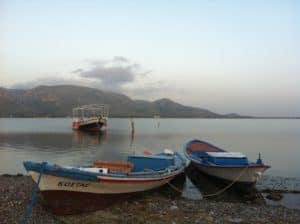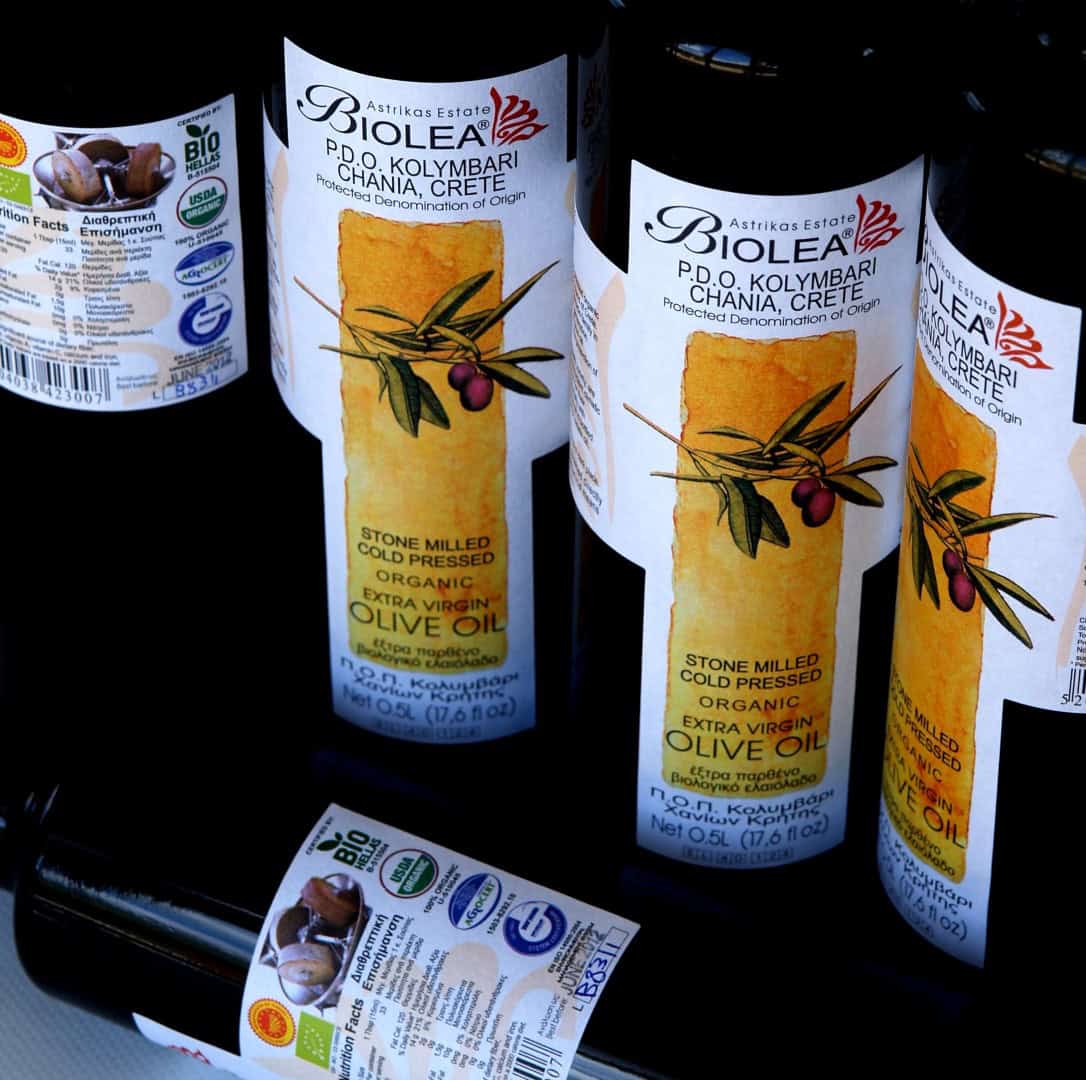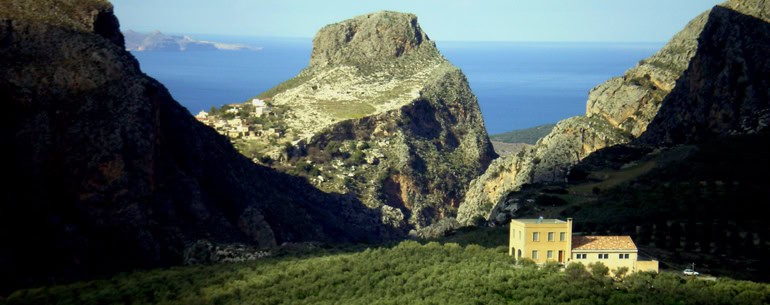A look at Mediterranean foods that are cancer preventative, antioxidant rich and loaded-to-the-gills with vitamins and minerals
We’ve all heard about good fats versus bad, whole foods versus processed, artisanal versus mass-produced. And long dispelled—thank goodness!—is the myth that a low-fat diet is the way to stay healthy. But in order to get healthy fats are we relegated to eating copious amounts of avocados, nuts and salmon for the rest of our lives? Too much of anything, no matter how delicious, gets a little boring after a while, am I right?
But what if there are other options? Like blow-your-mind, unique, crazy good options.
And it might not come as a surprise that Greece—one of the healthiest nations in the world—is putting out some pretty stellar stuff.
Stuff that not only tastes really good, but has some serious health benefits, too. We’re talking Cancer preventative, antioxidant rich, loaded-to-the-gills with vitamins and minerals foods.
Let me introduce you to a couple of Greek Superfoods that—although they won’t don a cape and leap buildings in a single bound—are indeed quite super.
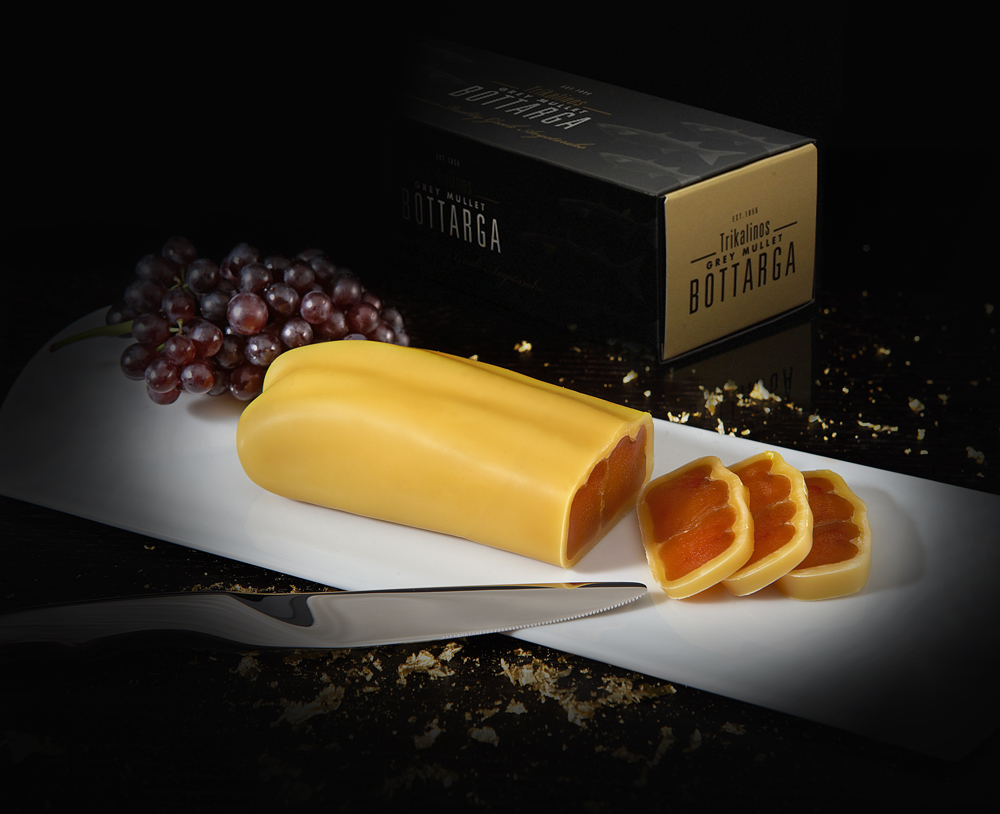 Avgotaraho—or Bottarga as the Italians call it—are whole mullet roe sacks, dried and preserved in beeswax. The Trikalinos family began producing Bottarga in 1856 and today the founder’s great grandson, Zafeiris Trikalinos, uses his proprietary drying system that mimics the gentle and slow process of natural air drying. The result is a balanced and delicate taste with a pleasant, long aftertaste. When you cut into the bottarga, the inside is soft and moist, not overly salty or dry. A couple serving ideas from Trikalinos is Avgotaraho Canapes which comprise thinly sliced baguette spread with cream cheese, topped with dried apricots or figs and sliced Avgotaraho and drizzled with mixed honey and balsamic vinegar. Or how about sunny side up eggs with wild asparagus and finely sliced bottarga and, just for good measure, a sprinkling of bottarga powder. Are you salivating yet?
Avgotaraho—or Bottarga as the Italians call it—are whole mullet roe sacks, dried and preserved in beeswax. The Trikalinos family began producing Bottarga in 1856 and today the founder’s great grandson, Zafeiris Trikalinos, uses his proprietary drying system that mimics the gentle and slow process of natural air drying. The result is a balanced and delicate taste with a pleasant, long aftertaste. When you cut into the bottarga, the inside is soft and moist, not overly salty or dry. A couple serving ideas from Trikalinos is Avgotaraho Canapes which comprise thinly sliced baguette spread with cream cheese, topped with dried apricots or figs and sliced Avgotaraho and drizzled with mixed honey and balsamic vinegar. Or how about sunny side up eggs with wild asparagus and finely sliced bottarga and, just for good measure, a sprinkling of bottarga powder. Are you salivating yet?
And if the deliciousness alone weren’t enough incentive to gobble it up, how about the quality of the product? Trikalinos uses only wild (not farmed) grey mullet roes which are recognized as the highest quality roe to be used for this delicacy. There are no added preservatives or chemical processes. The natural beeswax coating sufficiently preserves the product and its delicate taste throughout its shelf life, despite the low sodium content.
Are you on board yet? Maybe this will seal the deal: it’s really, really, really good for you.
Bottarga is high in proteins and a vitamins A, B5, B7, and B12 not to mention phosphorus and iodine. It also has a ton of “healthy fats,” or lipids, that help with normal brain, eye and heart functioning. These specific lipids are currently being studied for tumor inhibiting properties and as a nutraceutical in preventing colon cancer. 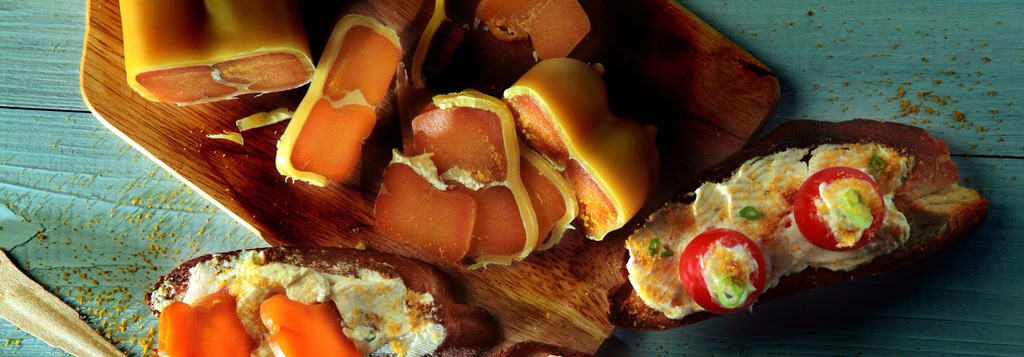 And a little celebrity shout-out never hurt either. Renowned chef Jose Andres endorsed Trikalinos Bottarga in 2005 and Ferran Adria of elBulli includes Trikalinos Bottarga in his top 30 World’s Best Products Selection.
And a little celebrity shout-out never hurt either. Renowned chef Jose Andres endorsed Trikalinos Bottarga in 2005 and Ferran Adria of elBulli includes Trikalinos Bottarga in his top 30 World’s Best Products Selection.
The next Greek superfood might fall into the far more ubiquitous and familiar category than Bottarga—but then you might take a closer look and see Biolea (Bee-oh-lay-ah) olive oil is anything but pedestrian olive oil.
BIOLEA (Bee-oh-lay-ah) was founded in 1997 by George Dimitriadis on an estate acquired by his family in the mid-1800s in Astrikas, Kolymbari in the Chania Prefecture on North-western Crete, Greece.
There are a million olive oils on the market, so what makes this one so special?
Perhaps the coolest thing about Biolea is the traditional stone-milled and cold pressed process used to extract the oil. This process does not require water which allows the water-soluble antioxidants and vitamins to remain intact. Biolea is the only Greek producer of olive oil—and one of the very few internationally—to receive the label of “stone-milled” and “cold-pressed.”
The flavor result of using this cultivating practice handed down through generations is an olive oil that is mild with a delicate fruitiness and a rich, nutty finish. It is a myth that Greek olive oils are characteristically heavy.
Dimitriadis says, “Cretan people, they like their olive oil to be mild because we eat much of it.”
So, put it on everything! It’s delicious, it’s good for you and this particular olive oil is pretty easy on the planet, too.
Not using water lessens the environmental impact of growing and processing the olive oil. This is important to Biolea because they value corporate ecological responsibility. Biolea is the only olive oil producing company in Greece certified for Environmental ISO 140001. The arid cultivation lends a character to the olive oil (just like that of wine) of subtle richness and complexity, which is characteristic of the local dry microenvironment. This also preserves the island’s precious water supply as well as saves the countryside from the introduction of thousands of meters of PVC plastic irrigation pipes.
Oh, and Biolea is single variety and single estate. And organic—certified by Bio Hellas, a member of IFOAM. Biolea believes that organic certification alone does not necessarily guarantee quality.
Perhaps Ari Weinzweig of Zingerman’s Community of Businesses and author of several books says it best:
“Long story short, from what I can tell, Biolea is working to be the olive oil mill of the future—technologically sound, food safe, environmentally aware, nutritionally intact, and community-oriented, producing a really delicious, single-estate olive oil that’s true to the region in which it’s produced.”
And that about says it all.
Written by Leska Tomash
